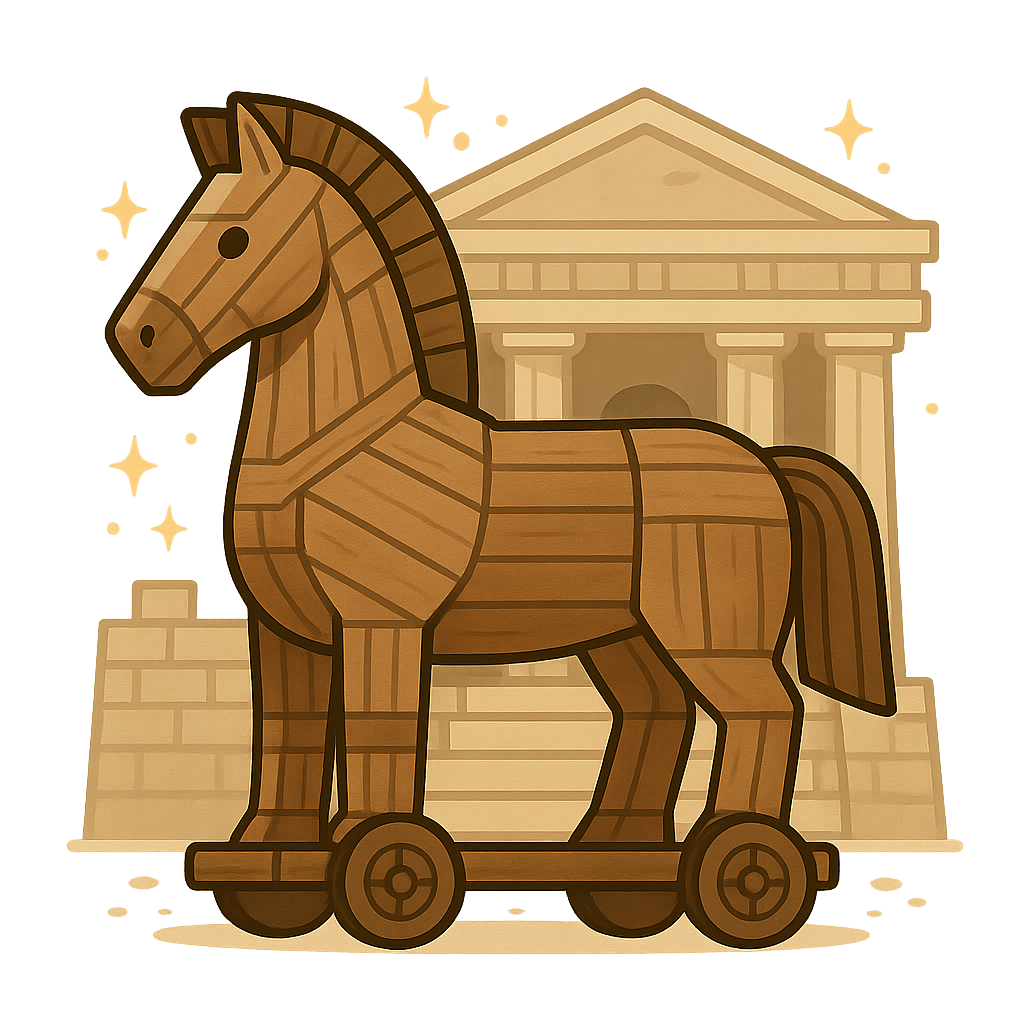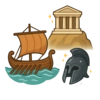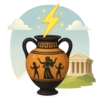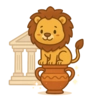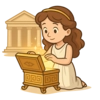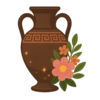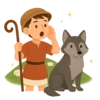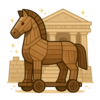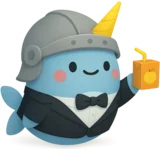The Trojan Horse
The sun over the plains of Troy was relentless, beating down on our camp day after day, year after year. My name is Odysseus, king of Ithaca, and for ten long years, I and my fellow Greek kings had been trying to capture the magnificent city of Troy, but its walls were too high, its gates too strong. We had fought bravely, but bravery alone wasn't enough, and we were all growing weary of this endless war. Our ships needed repairs, our soldiers missed their families, and our hearts were heavy with the thought of failure. I would pace the beach at night, staring at the formidable silhouette of the city, knowing that charging the walls again would only lead to more loss. I knew we needed something more than strength; we needed an idea, a trick so clever that the Trojans would defeat themselves. This is the story of how a little bit of cleverness and a lot of wood ended the greatest war of our time, the story of The Trojan Horse.
One night, as I stared at the unbreachable walls, an idea sparked in my mind, a whisper from the goddess of wisdom, Athena herself. We would not break down the gates; we would be invited inside them. “We will build a gift,” I announced to the other kings. “A gift so grand they cannot refuse it.” My plan was this: we would build a giant horse of wood, hollow on the inside, and offer it as a gift to the gods for our safe journey home. Our best soldiers, including me, would hide inside its belly. The rest of our army would pretend to sail away, leaving the horse on the beach as a sign of their surrender. A master carpenter named Epeius led the construction, using fir planks from a sacred grove. Soon, a magnificent horse, taller than a house with a mane of hemp and eyes of shimmering shells, stood on the sand. We left one man behind, the brave Sinon, whose job was to convince the Trojans that the horse was a sacred offering. We climbed a rope ladder into the dark, cramped space inside the horse, the air thick with the smell of pine and nervous sweat. Can you imagine being sealed in a wooden giant. We heard the shouts of the Trojans as they found the horse and listened as Sinon told his convincing story. Then, with a great lurch, we felt ourselves being pulled forward, rolling on wheels through the very gates we could never conquer.
Inside the city of Troy, we heard sounds of celebration. The Trojans believed the war was over and that they had won. They danced and sang late into the night, completely unaware of the danger hidden within their prize. From our hiding spot, we could hear the joyful music and smell the feasts they were cooking. It was excruciating to stay still and silent, knowing that our entire plan, and our lives, depended on their celebration ending. We waited in absolute silence, hardly daring to breathe. A single cough, a single sneeze, could give us away. Hours passed, feeling like days. The sounds outside grew softer and softer until all we could hear was the gentle night breeze and the distant call of an owl. Finally, when the city was quiet and dark, and the moon was high in the sky, we heard our signal. The hatch in the horse's belly opened, and we silently lowered a rope to the ground. One by one, we crept out into the sleeping city. Our mission was simple: open the main gates from the inside. We raced to the giant doors and threw back the heavy bars, allowing our army, which had secretly sailed back under the cover of darkness, to pour into the city. The Trojans were completely surprised. Our clever plan had worked perfectly, and by morning, the long, long Trojan War was finally over.
Our victory wasn't just because of strong arms, but because of a sharp mind. The story of the Trojan Horse was told for generations, first in songs and poems by storytellers like the great Homer, who included it in his epic, The Odyssey. It taught people that sometimes the most difficult problems can't be solved with force, but with creativity and intelligence. It shows that the mind is the most powerful weapon of all. Even today, thousands of years later, people still use the phrase 'a Trojan horse' to describe a trick that looks like a gift but hides a surprise inside. This ancient myth reminds us that thinking differently can change the world and that a good story, like a great idea, can live forever, inspiring us to be clever, brave, and imaginative in our own lives. It is a legend born not just of war, but of the incredible power of a single, brilliant idea.
Activities
Take a Quiz
Test what you learned with a fun quiz!
Get creative with colors!
Print a coloring book page of this topic.

